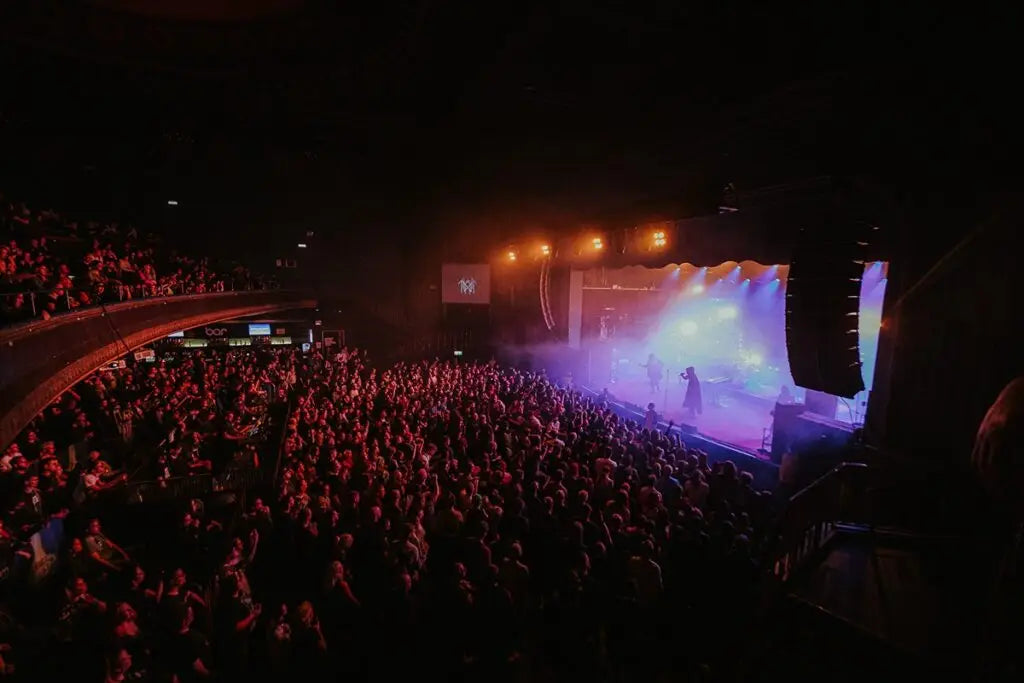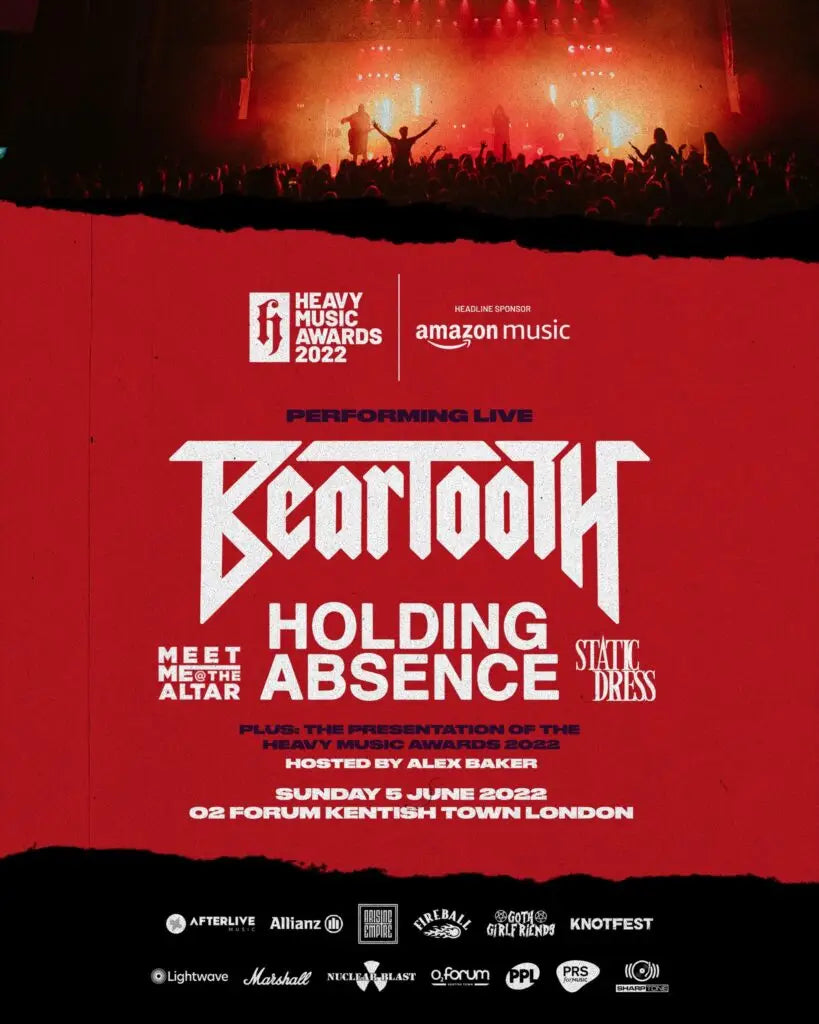
Editor's Note:
Following the 64th edition of The Grammy Awards, an evening regarded by many as one music's biggest nights, the conversation for most of the heavy music world was dominated by one talking point - the omission of names like Joey Jordison and Jon Zazula during the ceremony's 'In Memoriam' segment.
Given the contributions of a renowned photographer like Mick Rock, the visionary Megaforce Records' founder in Zazula and the game-changing, Grammy Award-winning drummer in Jordison, it was hard to not feel slighted by such a glaring oversight. In fact, many people in the heavy music circles saw it as yet another example of how the genre as a whole seems to be treated as an afterthought when it comes to getting the flowers it deserves.
With the recent partnership between Knotfest.com and the Heavy Music Awards, there seemed to be room for a discussion about how the platform of the HMAs has provided an awards show alternative, a democratic-driven, fan-oriented platform intended to shine a light on the artistry and cultural significance of heavy music. The idea was to get sense of how maybe the HMAs functioned as the antithesis of the pomp and circumstance of The Grammys - a ceremony forged with the idea of generating its own recognition, rather than seeking it elsewhere.
Instead, Heavy Music Awards' co-founder Andy Pritchard did one better. In a brilliantly penned op-ed, the cultural advocate offered a eloquent reminder of the only tribute that actually matters. Rather than look to award-shows to validate or match the kind of love for an artist that we have, Pritchard explains that our connection with the artists we love most remains far more powerful than any ceremonial display. No speech, no montage, no LED-display will ever match the thrill of turning up the volume on our favorite songs.
For Pritchard, the only celebration is endures is the personal one we share with our heroes.

Before we get started, full disclosure - Knotfest is media partner for the Heavy Music Awards. They asked us to share our thoughts on the Grammys’ recent omission of Joey Jordison from their In Memoriam section.
Of course, no right-minded awards show sets out to sully anyone’s legacy. The Grammys is an exceptional, culturally important event but even as the international juggernaut it has become, simply by including an In Memoriam section, they’re opening the door to an arguably unsolvable problem.
Where do you draw the line on who should and shouldn’t be included? Do some genres count more than others? Do singers rank above drummers? There’s not a correct answer, especially if you’re dealing with a global audience and multiple genres.
If you’re not familiar with the Heavy Music Awards, we launched in 2017 with the intention to be a fair and democratic celebration of a great year in rock music. All our shortlists are created by nominations from industry insiders, before winners are chosen by public vote. We have discussed including an In Memoriam section ourselves but as I said, it’s not straightforward. The very last thing we would want to do is upset a group of fans on a night that should be about celebrating people who are producing music right now that is making people happy.
I think you always remember exactly where you were when you heard that one of your idols has died.
Maybe it was Kurt Cobain, or Cliff Burton, or Dimebag Darrell, or Pete Steele, or Paul Gray, or Vinnie Paul, or Lemmy, or Ronnie James Dio, or Layne Staley, or Chester Bennington, or The Rev, or Riley Gale, or Chris Cornell, or Neil Peart, or Chi Cheng, or Caleb Scofield, or Tom Searle, or Eddie Van Halen or Taylor Hawkins… If you’ve been a rock fan for any length of time I’m sure at least one of those names has a time and place attached to it somewhere in your memory (and the irony is not lost on me that you’ll be able to pick out people I should have included on that list).
Joey Jordison, of course, deserves to be revered as one of the most influential musicians in rock history.
There’s a unique and profound connection you feel as a fan that makes your idol’s sudden death feel like a punch in the gut like no other.
Once the text messages start up, you find you’re thinking about their music, the first thing that made you and so many others love them. The songs they wrote with their friends, that you shared with your friends. And then you think about seeing them play live, seeing their energy and their talent first hand, their on-stage chemistry with their bandmates. The moments you all shared together that ironically made you all feel so alive.
And then, the most crushing part, you realise that the music and the live performances are DONE. That’s it. Whatever they put out into the world won’t be added to ever again. And that’s the worst bit as a fan, because you realise that you have to accept that you won’t get the excitement again of ever hearing what they will do next.
But the grief happens right then - you talk to fellow fans and share memories. It’s right that social media and the music press is awash with tributes and reactions, and the size of that reaction invariably shows a direct correlation with the artist’s impact in life. And when the noise has faded, you still experience those moments when you listen to the music you were left with and remember the artist all over again, and wonder what could have been. It’s a personal and shared grief all rolled into one.
I can’t tell anyone how to run their awards show or any fan how to process their grief at the loss of their idol, but I can say I think the best thing you can do is cling on to the artists you love while you still have the chance, and celebrate the idols we’ve lost by making sure their music never dies.
***
Andy Pritchard is co-founder of the Heavy Music Awards
heavymusicawards.com
Voting for HMA22 is currently open at vote.heavymusicawards.com and closes at 5pm on April 22nd.
All voters will be entered into a ballot for tickets to the ceremony on Sunday June 5th, 2022 at O2 Forum Kentish Town, London. No tickets to the event will be sold.





